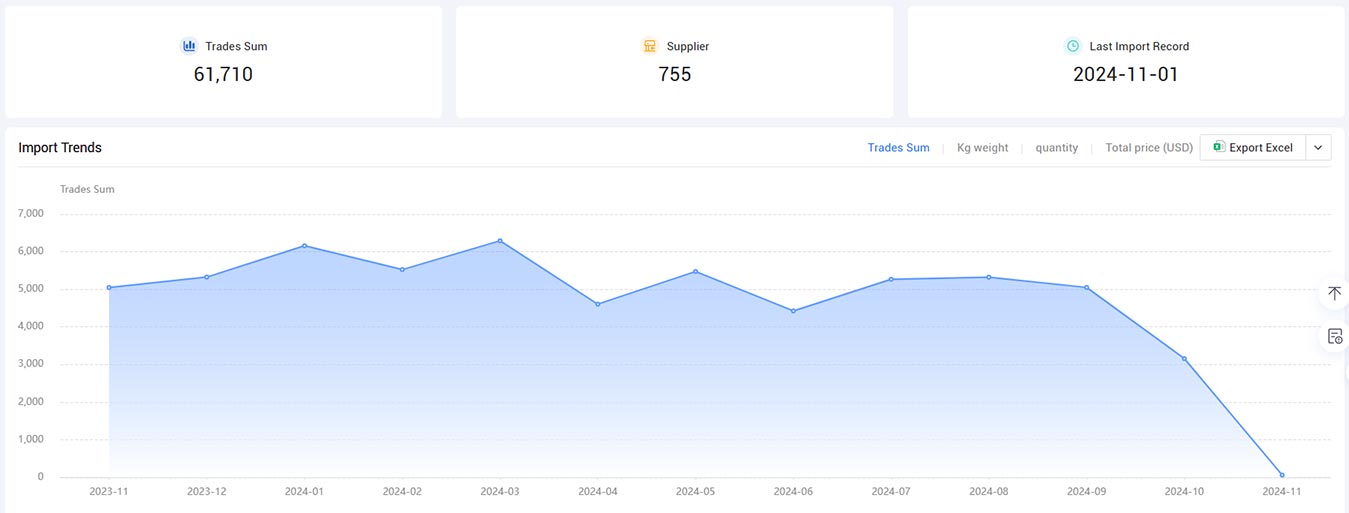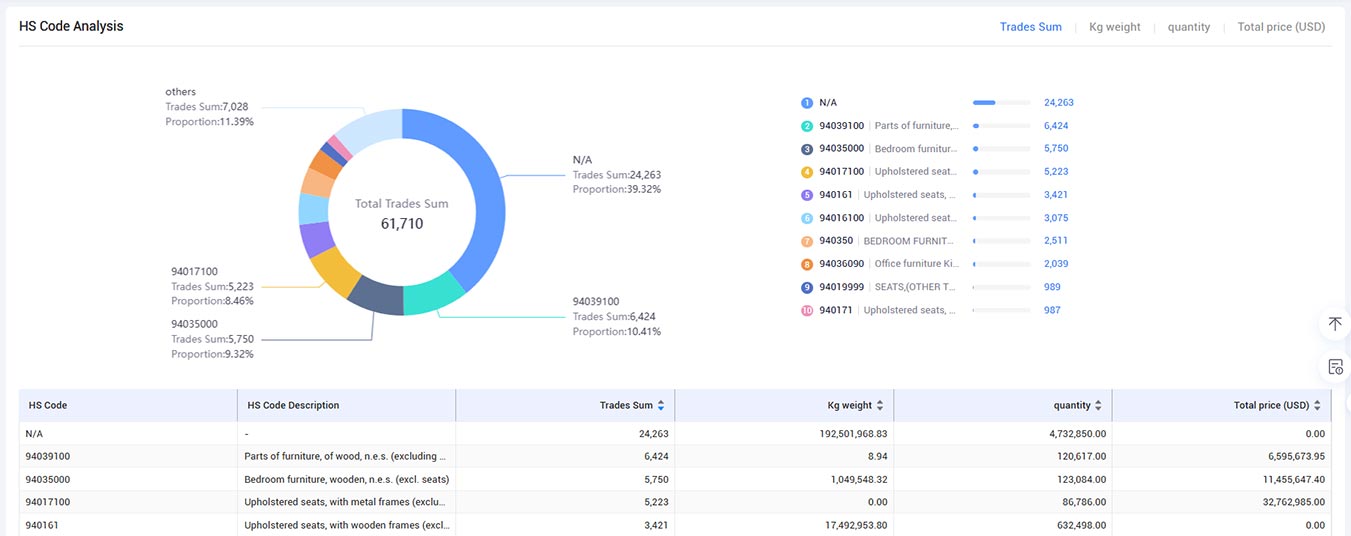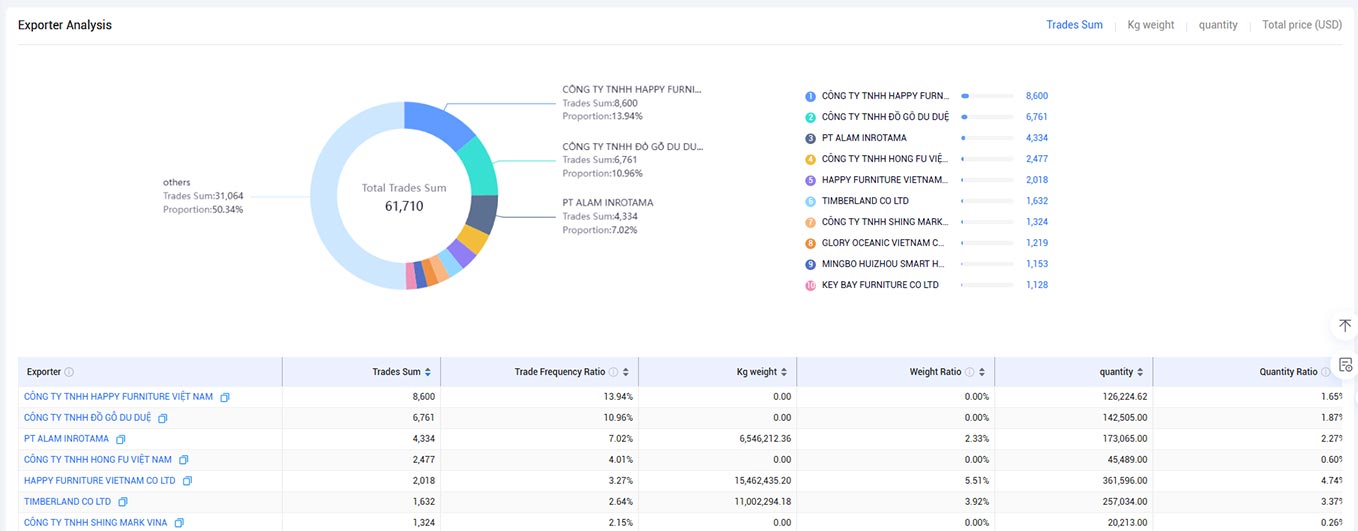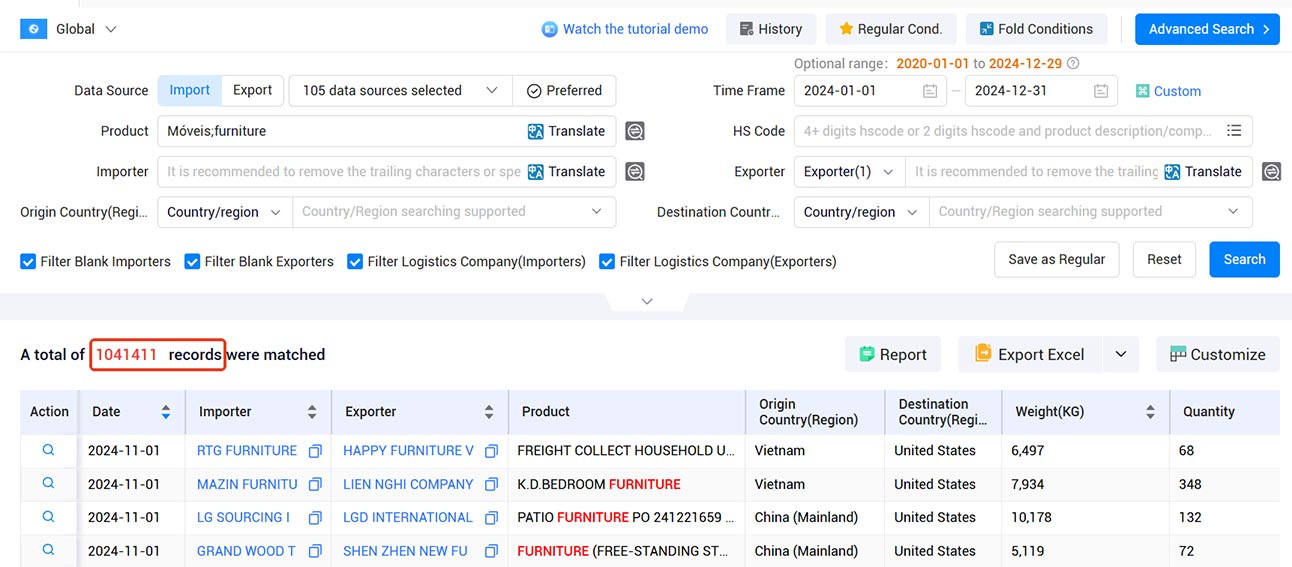 Trade Data Provider
Trade Data Provider
 06-11-2024
06-11-2024
With the acceleration of globalization, more and more companies are turning their attention to international markets, making foreign trade an essential avenue for business growth. To succeed in foreign trade, choosing the right platforms and tools is crucial. So, what are the best platforms for foreign trade? Is it necessary to use B2B platforms to engage in foreign trade? Let's explore with Tendata.

B2B Platforms for Foreign Trade
There's no doubt that newcomers to foreign trade typically try B2B platforms first. For those unsure how to proactively find clients, B2B platforms—where clients can come directly for inquiries—save a lot of effort. Among these B2B platforms, which are most suitable for foreign trade?
1. Alibaba.com
Alibaba International is one of the world's largest B2B (business-to-business) e-commerce platforms. It offers a secure and convenient trading environment for buyers and sellers worldwide, especially for small and medium-sized enterprises looking to find overseas clients and expand their international market presence.
- Global Buyer Resources: Alibaba has a vast database of buyers, making it easy for global buyers to find suitable suppliers.
- Multi-language Support: The platform supports multiple languages, removing language barriers and enabling easier communication between businesses from different countries.
- Online Marketing Tools: Alibaba provides numerous promotional tools like Pay-Per-Click (P4P) and featured listings to help sellers increase their product visibility and attract more buyers.
2. Made-in-China.com
Made-in-China.com is a B2B cross-border e-commerce platform focusing on Chinese-made products, helping Chinese manufacturers connect with global buyers. This platform is ideal for small and medium-sized Chinese manufacturers looking to expand into international markets.
- Focus on Chinese Manufacturing: The platform mostly showcases high-quality, cost-effective Chinese-made products, attracting many overseas buyers.
- Specialized Market: Made-in-China.com primarily attracts buyers from the machinery, industrial products, and electronics sectors, making it an ideal choice for companies in these industries.
3. Global Sources
Global Sources is a B2B platform serving global buyers, offering products in categories such as electronics, gifts, apparel, and home goods. The platform is known for its high-quality trade shows and online services, helping businesses expand their markets in global trade exhibitions and e-commerce.
- Dual Channel Promotion: Global Sources combines offline trade shows with its online platform to help companies showcase their products at international exhibitions while attracting more online buyers.
- Brand Reputation: This platform has long been focused on high-end products and international markets, earning the trust of buyers in Europe and North America.
However, after some time in foreign trade, many professionals find that B2B platforms can be too slow, with inquiries often taking a month or more to materialize. Furthermore, B2B platforms come with limitations such as limited access to customer information, fierce competition, and high promotion costs. Some savvy foreign traders are now looking to other platforms for business expansion, with customs data being a widely recommended tool. Compared to B2B platforms, customs data platforms provide precise market data, customer information, and competitive analysis, helping businesses conduct more effective market research and customer development, reducing risks, and improving foreign trade efficiency.
Disadvantages of B2B Platforms Compared to Customs Data Platforms
1. Limited Access to Customer Information
B2B platforms typically only provide information about registered users on the platform, meaning businesses can only reach buyers or sellers who are actively searching for suppliers or clients on the platform. This leads to:
- Limited Customer Reach: The number of potential buyers on a B2B platform is limited, and businesses cannot access companies that have not registered.
- Incomplete Customer Data: B2B platforms generally do not provide detailed information about buyers' backgrounds or transaction histories, whereas customs data platforms can display detailed information about importers, such as transaction frequency, amounts, and more.
In contrast, customs data platforms offer global trade records that can display trade information worldwide, not limited to any single platform, helping businesses find more potential customers.
2. Intense Competition and Difficulty Standing Out
B2B platforms, especially global platforms like Alibaba, are crowded with suppliers, resulting in intense competition for similar products. Every supplier faces price competition, and to stand out, significant advertising investments or special promotions may be needed.
- High Promotion Costs: To increase visibility, businesses often have to spend on platform promotion, PPC ads, and other marketing tools.
- Price Wars: Many suppliers on B2B platforms engage in price competition, which results in lower profit margins, particularly for small and medium-sized businesses.
Customs data platforms, on the other hand, help businesses directly find buyers with specific needs and craft targeted quotes based on customers' trading histories, minimizing price competition by reducing middlemen.
3. Lack of In-depth Market Analysis
B2B platforms are primarily focused on providing a space to display products and facilitate transactions but lack in-depth market analysis tools. Businesses struggle to understand the overall demand, product trends, and competitive landscape of a particular market through B2B platforms.
On the other hand, customs data platforms offer more comprehensive market data and analysis capabilities. For example, businesses can query import data for a specific country to understand which products are in high demand and which markets hold potential. This helps businesses craft more targeted marketing strategies.
4. Inability to Track Competitors
On B2B platforms, it is difficult to accurately track competitors' activities. While the platform may display some competitors' products or pricing, it doesn't provide access to their trade data or key customer information.
Customs data platforms, however, allow businesses to track competitors' global trade activities through import/export data. By understanding their competitors' customer base, export products, and market distribution, businesses can formulate more targeted strategies and engage in precise competition.
5. Difficulty Verifying Customer Authenticity
Due to the open nature of B2B platforms, it can sometimes be difficult to verify the authenticity of buyers, especially new ones. Businesses may face fake inquiries or unreliable buyers, increasing transaction risks.
Customs data platforms provide customer information based on actual trade records, making the data more reliable. The import records and transaction histories available can offer foreign trade businesses more trustworthy insights, reducing trade risks.
Recommended Customs Data Platforms
The use of customs data can be facilitated through professional customs data platforms. Among all the foreign trade platforms, Tendata is a leading global customs data query platform, providing comprehensive import/export data services for businesses.
1. Monitor Customer Dynamics and Find Value Dialogue Points
Regularly analyze customer websites, social media, and local e-commerce platforms, and combine this with Tendata's import/export activities. This data helps you better understand customer movements. News or personal updates from a customer can serve as an opening point for communication, creating targeted, value-driven dialogues.
>> Learn Customer Dynamics with Tendata <<

2. Understand the Customer's Purchasing Rhythm for Precise Service
By leveraging Tendata's insights into customers' promotional patterns, purchasing cycles, and competitive environments, businesses can avoid mistakes and ensure high-value services. For instance, by understanding a customer's purchasing rhythm and competitive environment, you can go beyond just following up and act as a consultant, advising them on when to "brake" or "accelerate" in their purchasing decisions.
>> Consult with Tendata <<




3. Identify Key Decision Makers and Influencers
Use Tendata to analyze key decision-makers and influencers within the client's company, understanding their preferences and business needs. This is useful for gift selection and building rapport. Building a long-term relationship requires consistent interaction and understanding the customer's core needs.
>> Get Key Decision-Makers Information from Tendata <<
4. Track Follow-Up Progress and Efficiently Manage Clients
Tendata can help track customers' import/export orders and transaction records. Each follow-up should be recorded in detail, including orders, samples, and communications. Regular updates will make it easier to review and track progress.
>> Use Tendata to Efficiently Follow-Up with Clients <<

5. Creative Marketing
Use Tendata's market analysis reports to avoid overwhelming customers with frequent interruptions. Instead, when customers reach out, provide professional and detailed responses. A well-prepared marketing plan with videos, presentations, and comparison charts will allow you to provide instant responses and ensure your materials are easy to understand and share with customers' teams.
>> Use Tendata for Creative Marketing <<
Category
Leave Message for Demo Request or Questions


 T-info
T-info T-discovery
T-discovery

 My
Tendata
My
Tendata Market Analysis
Market Analysis Customer
Development
Customer
Development Competitor
Monitoring
Competitor
Monitoring Customer Relationship
Customer Relationship





































































































































